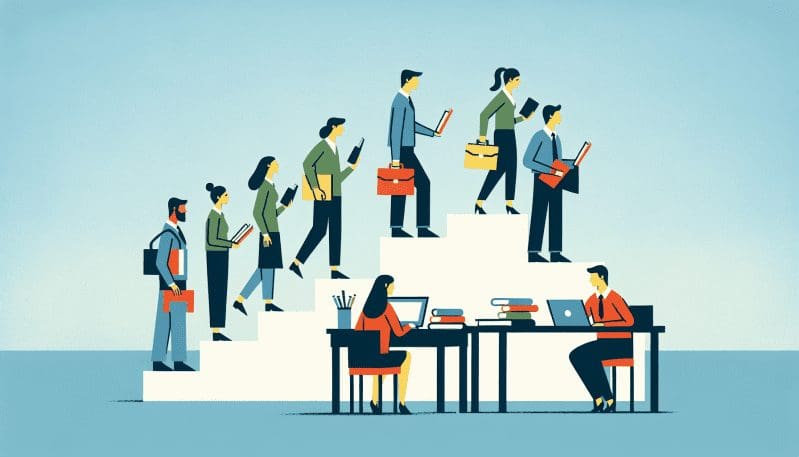In the rapidly evolving landscape of government work, the ability to continuously develop one’s skill set is not just advantageous; it’s necessary. With each technological breakthrough and each shift in policy, the requirements of effective public service transform. To maintain a workforce that is both competent and contemporary, upskilling has become imperative. However, this necessity raises a critical concern: How do we ensure that these educational opportunities are accessible to all employees, cultivating a culture of growth that does not just cater to the privileged few but uplifts every stratum of our diverse workforce?
As a diversity and inclusion expert, I see firsthand the challenges and opportunities of implementing equitable upskilling programs in government institutions. The importance of these programs cannot be overstated. They empower employees with the latest knowledge and practices, enabling them to execute their duties with an enhanced level of expertise. Yet, without a careful and inclusive approach, the benefits of upskilling can become unequally distributed, exacerbating existing inequities within the workforce.
Leadership plays a crucial role in this respect. It is incumbent upon government leaders to champion upskilling initiatives that recognize and accommodate the varying needs of their diverse employees. Leaders must exhibit a commitment to equity, ensuring that programs are designed with an understanding of the barriers that can hinder participation for minority and underrepresented groups. This commitment translates into action through flexible scheduling, diverse delivery methods, and the acknowledgment of different learning styles and capacities.
Mentorship programs can also serve as a powerful tool in promoting an inclusive upskilling environment. By pairing seasoned professionals with those who are looking to advance their skills, mentorship creates a support system that facilitates knowledge transfer and opens doors to networking opportunities often unavailable to those outside established circles. This dynamic not only fosters personal and professional growth but also helps to dismantle hierarchical impediments to advancement.
Finally, the development of inclusive upskilling initiatives must be intentional. These initiatives should be thoughtfully crafted to be inclusive by design, offering a variety of entry points for employees of all backgrounds. Whether through online courses, on-the-job training, or collaborative projects, these programs should ideally cater to a broad spectrum of learning preferences and life situations. By doing so, they not only level the playing field but also enrich the collective expertise of the government workforce.
In conclusion, the call to upskill government workforces is not just about staying current—it’s about advancing a public service that is equitable and exemplary. By investing in strategies that elevate all employees, government institutions can create a powerful ripple effect: a more inclusive workplace leading to a more informed and inclusive society. Together, let’s embrace the upskilling imperative, not as a trend, but as a testament to our commitment to excellence and equity in public service.

















![From TAOLabs: A New, Simplified Way to Learn in the Age of Chaos [30m60h90d] From TAOLabs: A New, Simplified Way to Learn in the Age of Chaos](https://theworktimes.com/wp-content/uploads/2025/05/ChatGPT-Image-May-13-2025-01_11_22-AM-238x178.png)










